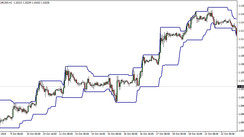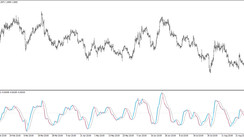Bitcoin is owned by roughly 17% of the world’s population, out of it by 46 million Americans. Global companies, such as Amazon, Microsoft or Home Depot, accept bitcoin as a regular form of payment. There is currently around USD 36 trillion bitcoin in circulation all around the world. Undoubtedly, bitcoin has become the best-known cryptocurrency and that is why ProfitLevel has included it as an example in its educational programme for clients and market participants to analyse its benefits, risks and disadvantages.
After a significant growth of various cryptocurrencies between first quarters of 2020 and 2021, the value of cryptocurrency wobbled in spring 2021. The sell-off in April even smashed about 50% of bitcoin’s value, which plunged to USD 30,000. Among other factors, it was a response to the critical comments by Elon Musk and activities of Chinese government against cryptocurrencies.
These two examples illustrate two key risks for all investors interested in purchasing bitcoin with the vision of safe harbour, i.e. as a store of value.
At first, we will have a look at bitcoin in the long-term, and as bitcoin value accelerated in recent years, we will focus on growth of bitcoin value.
Wide acceptance by the investment world
IT supporters took a liking in a digital currency whose source code promises a pre-defined amount of currency, which is similar to, for example, limited exploitable sources of precious metal. In other words, the higher the demand for the asset, the higher its value growth. In the long run, there is no space for any further growth of supply. Therefore, economically minded investors joined in as they saw an advantage in this characteristic that no government-issued currencies (the so called ‘fiat currencies’) have. On the contrary, these currencies including the dollar, euro or yuan can exist on the market with an unlimited supply. Yes, central banks, as issuers of these currencies, prove every day that they are able to print money with no limits, which may result in proportionate depreciation of currency, so called inflation.
Supporters and liberal economists were followed by “regular”, reputable investors, such as Ray Dalio or Carl Icahn, together with investment banks JPMorgan and Goldman Sachs, and gave their blessing to the digital currency credit (namely ethereum apart from bitcoin).
They triggered the avalanche in which the most diverse reasons in favour of bitcoin and other cryptocurrencies started to mix. Investors’ statements imply that the primary reason is inflation.
“I think that the current inflation is a natural manifestation,” said Dalio and added, “it has not been here yet – but we had it in 1970’s and what happens when it comes is that [people] will seek an alternative store of value outside of the dollar. Now, the dollar is a reserve currency but will no longer be if we keep printing money.”
Carl Icahn told Taylor Riggs for Bloomberg Markets that he did not own any digital currencies but planned to invest up to USD 1.5 billion. His preference is ethereum that can be used for both a payment system and a store of value in his opinion.
The media started commenting the cryptocurrency market development as revolutionary because popular influencers, including Elon Musk in this context, as well as respectable bankers awakened regular retail investors’interest in bitcoin. Those investors were able to exchange investments in dividend shares or mutual funds for cryptocurrencies. This expectation drove a global boom of demand, which was supported by lockdown measures adopted in connection with the Covid-19 pandemic.
Payments with cryptocurrencies
While the number of bitcoin transactions is much lower compared to Visa or Mastercard, more and more money flow through blockchain, which is a database through which bitcoin transactions are carried out. However, bitcoin has not acted as a typical competitor to the above-mentioned companies so far, it is rather their complement and a solution for problems with payment fees.
There are voices saying that bitcoin is slow and expensive compared to standard bank transfers. But if we take a closer look we will see that at the average price of USD 35 per cross-border payment the opposite is true. In addition to bank fees, a standard system user may pay tariffs charged for payments by centralised mediators. In some cases, permits and authorisations are required to transfer money but with cryptocurrencies, neither party to the transfer faces the above-mentioned restrictions.
At least, there’s no such situation of government adopting strict measures against a cryptocurrency and starting to regulate or directly prohibit it. Such situations occurred in Iran, Turkey or China. And this leads us back to risks of cryptocurrencies.
Extremely risky investment in terms of store of value
Daily movements of bitcoin values ofseveral percent, and often much more, provide evidence that a cryptocurrency is a very unstable investment compared to fiat currencies as well as stock indices or even shares. The unpredictable development of its value is the critical investment risk as such and any reliable broker will seriously warn his client against investing funds into cryptocurrencies. For this reason, some brokers exclude cryptocurrencies entirely from their portfolios and stick to the proven types of assets.
Bitcoin holders may argue by pointing out to its long-term growth so far. But we know from our investment theory and practice that past earnings do not necessarily mean future earnings. This is accompanied by two counter-arguments explaining why bitcoin might not grow in the long term.
The first argument comes from the market. The bitcoin source code is open and includes no trade secret or value added compared to other cryptocurrencies. Nevertheless, its fame and reputation is huge because it was the first one of the well-known cryptocurrencies.
The risk is that investors will go to other cryptocurrency or cryptocurrencies that will offer principally the same as bitcoin but may add something more than that. With reference to Elon Musk’s contradiction, it may be, for example, eco-friendliness which is alarming in case of bitcoin due to the consumption of power needed for its mining.
If bitcoin holders start selling in large quantities, the limited supply will be of no help and its value will fall.
The other long-term risk comes from a direction opposite to the market - from regulation. Not only the above-mentioned governments of some undemocratic regimes, but also the entire Western world is considering various forms of regulation for bitcoin and other cryptocurrencies. What is at stake is consumer protection, fight against tax evasion and illegal economy, and after all, also the growing competition between cryptocurrencies and fiat currencies on which national economic policies are built although central banks are usually established as independent on governments.
Restrictions and complications that will add up for bitcoin holders together with regulation may be another reason why investors may want to get rid of bitcoins. The law of supply and demand will verify the real value of the currently most popular cryptocurrency.
Legal:
PT. PROFITFXLEVEL (hereinafter, ProfitLevel) is a registered brand name of BCM Begin Capital Markets CY Ltd, a Cypriot Investment Firm (CIF) supervised and regulated by the Cyprus Securities and Exchange Commission (CySEC) with CIF License No 274/15 and registered address 182, Ayias Fylaxeos, Kofteros Business Center, Office 103, 3083 Limassol, Cyprus.
Risk warning:
CFDs are complex instruments and come with a high risk of losing money rapidly due to leverage. | 76.69% of retail investor accounts lose money when trading CFDs with this provider. | You should consider whether you understand how CFDs work and whether you can afford to take the high risk of losing your money.





